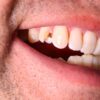Gum Disease – What Causes It and How to Look After Your Gums
Gum disease, often underestimated, is a silent culprit behind many oral health issues. At Perfect Smile Spa in Essex, we’re passionate about spreading awareness on maintaining excellent dental hygiene. So, let’s dive into understanding gum disease, its causes, symptoms, prevention, and treatments.
Understanding Gum Disease
What is Gum Disease?
Gum disease, also known as periodontal disease, is an infection of the tissues that hold your teeth in place. It’s usually the result of poor oral hygiene, leading to plaque buildup on the teeth and gums.
Common Types of Gum Disease
There are two main types of gum disease: gingivitis and periodontitis. Gingivitis is the milder form, causing red and swollen gums that bleed easily. Periodontitis, a more severe form, can lead to tooth loss and serious health complications.
Causes of Gum Disease
Poor Oral Hygiene
Neglecting your oral hygiene is the primary cause of gum disease. Failing to brush and floss regularly allows plaque to harden into tartar, creating a breeding ground for bacteria.
Smoking and Tobacco Use
Smoking and using tobacco products can damage your gums and lower your immune system, making it harder to fight off gum infections.
Genetic Factors
Believe it or not, gum disease can run in families. If your parents had gum disease, you might be at a higher risk, even if you have excellent oral hygiene.
Hormonal Changes
Hormonal changes during pregnancy, menstruation, menopause, and puberty can make gums more sensitive and susceptible to gum disease.
Medications and Health Conditions
Certain medications and health conditions, like diabetes, can affect your oral health and increase the risk of gum disease.
Symptoms of Gum Disease
Early Warning Signs
Look out for red, swollen, and bleeding gums. Persistent bad breath and a bad taste in your mouth are also early signs of gum disease.
Advanced Symptoms
As gum disease progresses, you may experience receding gums, loose teeth, and changes in your bite. These symptoms require immediate dental attention.
Preventing Gum Disease
Proper Brushing Techniques
Brush your teeth at least twice a day using fluoride toothpaste. Make sure to use a soft-bristled toothbrush and replace it every three to four months.
Flossing Regularly
Flossing removes plaque and food particles from between your teeth and under the gum line where your toothbrush can’t reach. Do it daily!
Using Mouthwash
An antimicrobial mouthwash can help reduce plaque and prevent gum disease. Choose one with fluoride to strengthen your teeth.
Regular Dental Check-ups
Visit your dentist regularly for professional cleanings and check-ups. Early detection is key to preventing severe gum disease.
Treating Gum Disease
Professional Dental Treatments
Treatments for gum disease range from deep cleaning (scaling and root planing) to surgical procedures for advanced cases. Your dentist will determine the best course of action.
Home Remedies and Care
In addition to professional treatments, maintain good oral hygiene at home. Use a soft-bristled toothbrush, floss daily, and rinse with an antiseptic mouthwash.
Long-term Management
Managing gum disease is a lifelong commitment. Keep up with your dental appointments, maintain your oral hygiene, and follow your dentist’s advice to prevent recurrence.
The Importance of Dental Hygiene
Overall Health Benefits
Good dental hygiene isn’t just about having a bright smile. It’s essential for your overall health. Poor oral health can lead to various health issues, including heart disease and diabetes.
Preventing Other Dental Issues
Maintaining excellent dental hygiene helps prevent other dental problems like cavities, tooth decay, and bad breath. It’s a win-win situation!
Conclusion
Gum disease is a serious condition that can have significant impacts on your oral and overall health. By understanding its causes, symptoms, and prevention methods, you can take proactive steps to maintain healthy gums.
At Perfect Smile Spa, we’re dedicated to helping you achieve and maintain a beautiful, healthy smile. Remember, your smile is our passion! Contact us to learn more about our gum treatments in Essex!
FAQs
Q1: How often should I visit the dentist to prevent gum disease?
It’s recommended to visit your dentist at least twice a year for regular check-ups and cleanings.
Q2: Can gum disease be reversed?
Early-stage gum disease (gingivitis) can often be reversed with good oral hygiene and professional cleanings. Advanced gum disease (periodontitis) requires more intensive treatment.
Q3: Are electric toothbrushes better for preventing gum disease?
Electric toothbrushes can be more effective at removing plaque and reducing gingivitis compared to manual toothbrushes.
Q4: Does diet affect gum health?
Yes, a balanced diet rich in vitamins and minerals supports healthy gums. Avoid sugary foods and drinks that can contribute to plaque buildup.
Q5: Can stress cause gum disease?
Stress can weaken your immune system and make it harder for your body to fight off infections, including gum disease.



